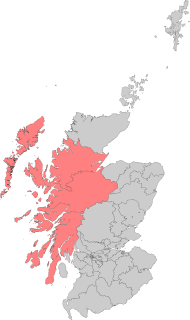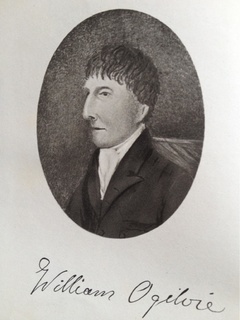 W
WLand reform in Scotland is the ongoing process by which the ownership of land, its distribution and the law which governs it is modified, reformed and modernised by property and regulatory law.
 W
WThe Abolition of Feudal Tenure etc. (Scotland) Act 2000 was a land reform enforced by an Act of the Scottish Parliament that was passed by the Scottish Parliament on 3 May 2000, and received Royal Assent on 9 June 2000.
 W
WThe Cabinet Secretary for Environment, Climate Change and Land Reform is a cabinet post in the Scottish Government. The Cabinet Secretary is responsible for:policy on climate change, environmental protection and biodiversity; environmental and climate justice; flood prevention & coastal erosion; land use and land reform; animal welfare; wildlife crime; water quality and Scottish Water; and Crown Estate Scotland.
 W
WThe Community Empowerment (Scotland) Act 2015 is an Act of the Scottish Parliament. The act is notable for expanding the Community Right to Buy established by the Land Reform (Scotland) Act 2003 to include urban communities and for introducing new powers for Scottish Ministers to compel owners of abandoned or neglected to land to interested community bodies.
 W
WThe first Highland Land League emerged as a distinct political force in Scotland during the 1880s, with its power base in the country's Highlands and Islands. It was known also as the Highland Land Law Reform Association and the Crofters' Party. It was consciously modelled on the Irish Land League.
 W
WThe Highland Land League founded in 1909 was a left wing political party active in Scotland in the early twentieth century. It was separate from, although a conscious imitation of, the late 19th century Highland Land League.
 W
WThe Land Reform (Scotland) Act 2003 is an Act of the Scottish Parliament which establishes statutory public rights of access to land and makes provisions under which bodies representing rural and crofting communities may buy land.
 W
WThe Land Reform (Scotland) Act 2016 is an Act of the Scottish Parliament which continues the process of land reform in Scotland following the Community Empowerment (Scotland) Act 2015. It is notable for granting Scottish ministers the power to force the sale of private land to community bodies to further sustainable development in the absence of a willing seller.
 W
WWilliam Ogilvie of Pittensear FRSE FSA(Scot) (1736-1819), known as the Rebel Professor and described by his biographer as the ''Euclid of Land law Reform', was a Scottish classicist, numismatist and author of an influential historic land reform treatise. Published in London in 1781, An Essay on the Right of Property in Land was issued anonymously, necessarily it seems in a revolutionary age.
 W
WThe Scottish Land Commission was established by the Scottish Government following the passage of the Land Reform (Scotland) Act 2016 by the Scottish Parliament; the Commission also incorporates the work of the Tenant Farming Commissioner. The Lands Commissioners, who constitute the Commission, have functions relating to land in Scotland, so that they address issues which relate to ownership of land, land rights, management of land, and use of land. The Tenant Farming Commissioner has the aim of improving the relationship between tenant farmers and land owners, and can create codes of practice, provide practical guidance, and must consult on such matters. The Tenant Farming Commissioner cannot be an agricultural landlord or agricultural tenant, and will develop codes of practice which are in addition to the law and the jurisdiction of the Scottish Land Court.
 W
WThe Tenements (Scotland) Act 2004 is an Act of the Scottish Parliament which is the main source of the law of the tenement, which regulates tenement flats.
 W
WThe Title Conditions (Scotland) Act 2003 is an Act of the Scottish Parliament. It came into force on 28 November 2004, and is one element of a three part land reform abolishing feudal tenure and modernising Scottish property law, the other two elements being the Abolition of Feudal Tenure etc. (Scotland) Act 2000 and Tenements (Scotland) Act 2004 which came into effect on the same date.
Andrew Dearg Wightman is a Scottish Green Party Member of the Scottish Parliament (MSP) for the Lothian region and a writer and researcher best known for his work on land ownership in Scotland. He is the author of Who Owns Scotland (1996) and The Poor Had No Lawyers (2015).